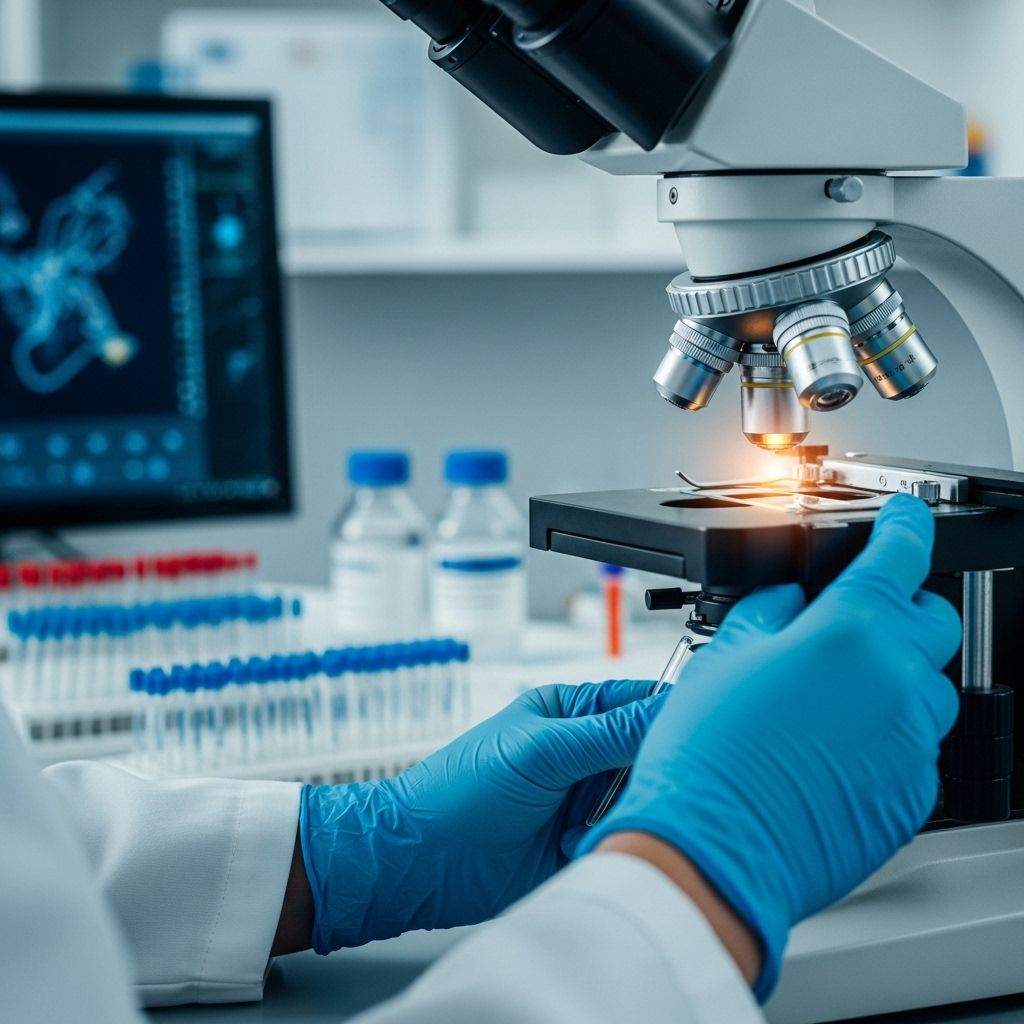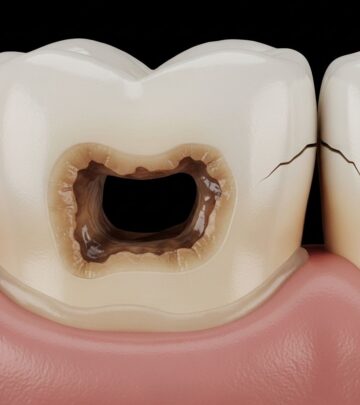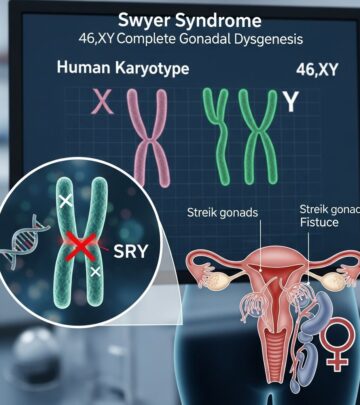The Pathologist: Expert Diagnosis and the Power of Laboratory Medicine
Explore the vital role of pathologists in modern healthcare, where laboratory insights support accurate diagnoses and patient care.

The Pathologist: Key to Accurate Diagnosis and Advanced Patient Care
Pathologists are medical doctors who specialize in the study and diagnosis of diseases through laboratory analysis of tissues, organs, blood, and other bodily fluids. They play a foundational role in modern medicine by identifying disease processes and guiding treatment plans. Pathologists combine medical expertise and cutting-edge laboratory science to ensure patients receive precise and timely diagnoses.
What is a Pathologist?
A pathologist is a physician who applies knowledge of biology, chemistry, and medical science to study disease.
They examine samples of tissue, blood, and other fluids from living patients and deceased individuals, seeking the root cause of symptoms or death.
Their interpretations of laboratory results frequently shape key decisions in patient management, surgery, transfusion, cancer care, and more.
Pathologists do not typically interact directly with patients; instead, they work closely with other healthcare providers to guide diagnosis and treatment.
- Medical Degree: Pathologists complete medical school, followed by years of specialized training.
- Specialists in Disease Diagnosis: They use laboratory tools—microscopes, cell counters, and complex equipment—to analyze samples.
- Consultants: Their reports and insights directly impact patient care, therapies, and public health.
Core Responsibilities and Duties
Pathologists have a broad scope of duties that underpin nearly every area of medicine. Their primary responsibilities include:
- Analyzing tissue samples from biopsies, surgeries, or autopsies to identify disease type, stage, and prognosis.
- Examining blood, urine, and other fluid specimens to diagnose infections, anemia, cancer, and metabolic disorders.
- Producing clear written pathology reports that inform treatment plans for physicians, surgeons, and other clinicians.
- Performing and interpreting laboratory tests using sophisticated diagnostic technology.
- Setting and enforcing laboratory standards to ensure accuracy, safety, and reliability.
- Providing expertise in transfusion medicine and blood compatibility assessment.
- Consulting on cases involving complex genetics, cancer diagnosis, and infectious diseases.
- Participating in multidisciplinary teams to support personalized patient care.
Varieties of Pathology: Anatomic, Clinical, and Forensic
Pathology encompasses several subspecialties, each emphasizing different aspects of disease diagnosis and management:
| Type | Focus | Main Responsibilities |
|---|---|---|
| Anatomic Pathologist | Studies solid tissue specimens (e.g., biopsies of organs, surgical samples) | Uses microscopes to evaluate physical changes in cells or tissues and identify cancers, infections, or abnormalities. |
| Clinical Pathologist | Analyzes fluids (blood, urine, cerebrospinal fluid), and oversees lab tests | Evaluates chemical, genetic, or immunological abnormalities to diagnose disease and guide therapies, sets transfusion guidelines. |
| Forensic Pathologist | Investigates causes of death, especially in suspicious cases | Works with legal authorities, performs autopsies, produces forensic reports, may serve as medical examiner. |
- Subspecialties: Pathologists may further specialize in areas such as hematopathology (blood diseases), neuropathology (nervous system), dermatopathology (skin), and more.
- Role in Cancer Care: Anatomic pathologists are instrumental in confirming cancer diagnoses, staging tumors, and guiding oncologists in choosing the best therapies.
- Role in Public Health: Clinical pathologists help detect outbreaks, monitor infectious diseases, and support population-wide screening programs.
Pathologists in the Hospital
In hospitals and healthcare systems, pathologists serve a vital role behind the scenes:
- Directing medical laboratories, ensuring stringent standards for sample collection, processing, and documentation.
- Supporting physicians by interpreting complex test results, providing second opinions, and validating diagnostic findings.
- Participating in multidisciplinary meetings, such as tumor boards, to collaboratively plan patient care.
- Training medical students, residents, and laboratory staff in laboratory practices and disease mechanisms.
- Engaging in research to improve diagnostic techniques and advance medical knowledge.
Pathologists in Community Practice
Many pathologists work outside major hospital systems in smaller practices, clinics, or reference laboratories. Their community role includes:
- Providing timely and accurate lab results that guide primary care and preventive medicine.
- Building professional relationships with referring physicians and healthcare networks.
- Establishing quality assurance protocols in laboratory management.
- Interpreting specialized tests that require expert review.
Pathologist Assistants: Essential Support in Laboratory Medicine
Pathologist assistants are highly trained professionals who aid pathologists in technical and administrative tasks. Their responsibilities include:
- Collection and processing of tissue specimens under the guidance of a pathologist.
- Preparation and review of slides and pathology reports.
- Accurate documentation of laboratory activities, results, and clinical summaries.
- Maintenance of equipment and laboratory records.
- Patient education and support regarding lab services.
Most pathologist assistants hold master’s degrees, are certified by the American Society for Clinical Pathology (ASCP), and have strong backgrounds in laboratory science, clinical pathology, and medical terminology.
Training and Qualifications
Becoming a pathologist requires extensive formal education and training:
- Completion of a medical degree (MD or DO).
- Residency in pathology, often lasting four or more years, with advanced training in either anatomic, clinical, or combined pathology.
- Fellowship for further specialization, e.g., forensic, hematopathology, or surgical pathology.
- Board certification after rigorous examination and evaluation.
- Ongoing medical education to stay current with advances in diagnostic technology and laboratory science.
Pathologist assistants typically need a master’s degree in a related discipline, certification by the ASCP, and considerable laboratory experience.
Skills and Qualities of Successful Pathologists
The role requires a unique blend of technical expertise and personal qualities:
- Keen observation: Ability to notice minute changes in cells, tissues, and test results that indicate diseases.
- Analytical thinking: Logical reasoning and problem-solving in diagnosing complex cases.
- Adaptability: Willingness to embrace new technology and evolving scientific knowledge.
- Organizational skills: Efficient laboratory management and precise documentation.
- Communication: Articulate in writing clear, actionable reports and consulting with medical colleagues.
- Curiosity and diligence: Engaged in continuous learning and pursuing medical research.
Impact of Pathologists on Patient Outcomes
The expertise of pathologists profoundly affects health care:
- Rapid, accurate diagnosis shortens time to treatment and leads to better outcomes for patients with infections, cancer, and other diseases.
- Early detection of disease through screening programs, such as for cervical cancer (Pap tests), saves lives.
- Precise interpretation of genetic tests enables personalized medicine and targeted therapies.
- Accurate forensic analysis assists in public health surveillance and legal investigations.
Career Opportunities in Pathology
Pathologists have diverse career options, including:
- Academic medicine—teaching, research, and leadership in university hospitals.
- Private practice—serving local physicians and healthcare organizations.
- Government public health roles—tracking outbreaks and infectious disease.
- Industry positions—pharmaceutical and biotechnology development.
- Forensic work—in medical examiner’s offices and criminal justice.
Pathologist assistants, technicians, and laboratory staff also enjoy dynamic careers supporting laboratory operations and innovation.
Frequently Asked Questions (FAQs)
Q: What is the difference between a pathologist and a medical examiner?
A: Medical examiners are specialized forensic pathologists who determine cause of death, especially in suspicious cases, and often work with law enforcement. Pathologists also work with living patients, diagnosing disease and guiding treatment plans.
Q: Do pathologists interact directly with patients?
A: Most of their work is behind the scenes, collaborating with clinical teams and providing reports. They rarely interact with patients face-to-face, except in consultative or academic settings.
Q: What are the personal qualities of a good pathologist?
A: Key attributes include attention to detail, curiosity, analytical thinking, good organizational skills, and strong communication abilities.
Q: What certification is required for pathologist assistants?
A: Pathologist assistants typically must be certified by the American Society for Clinical Pathology (ASCP) and have completed a relevant master’s degree.
Q: How do pathologists influence patient care?
A: By analyzing lab specimens and producing diagnostic reports, pathologists guide the choice and timing of treatments, improve diagnostic accuracy, and monitor disease progression.
Conclusion: Why Pathologists Matter
Pathologists are essential to modern medicine, anchoring patient care in scientific discovery and laboratory precision. Their behind-the-scenes expertise provides the foundation for safe, effective, and personalized healthcare—demonstrating that the answers to many medical mysteries often lie under the microscope.
Read full bio of Sneha Tete












